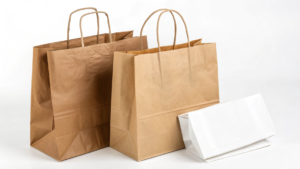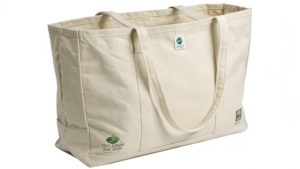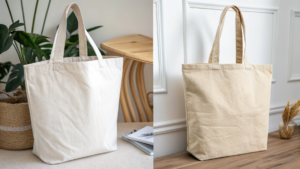What Are the Best Notebooks and Notepads for You?
You need to write things down. Should you grab a notebook or a notepad? With so many choices, how do you pick the right one?
The best notebooks and notepads for you depend on your needs. Notebooks are best for things you want to keep for a long time, like journals. Notepads are good for quick, everyday notes that you might throw away later.
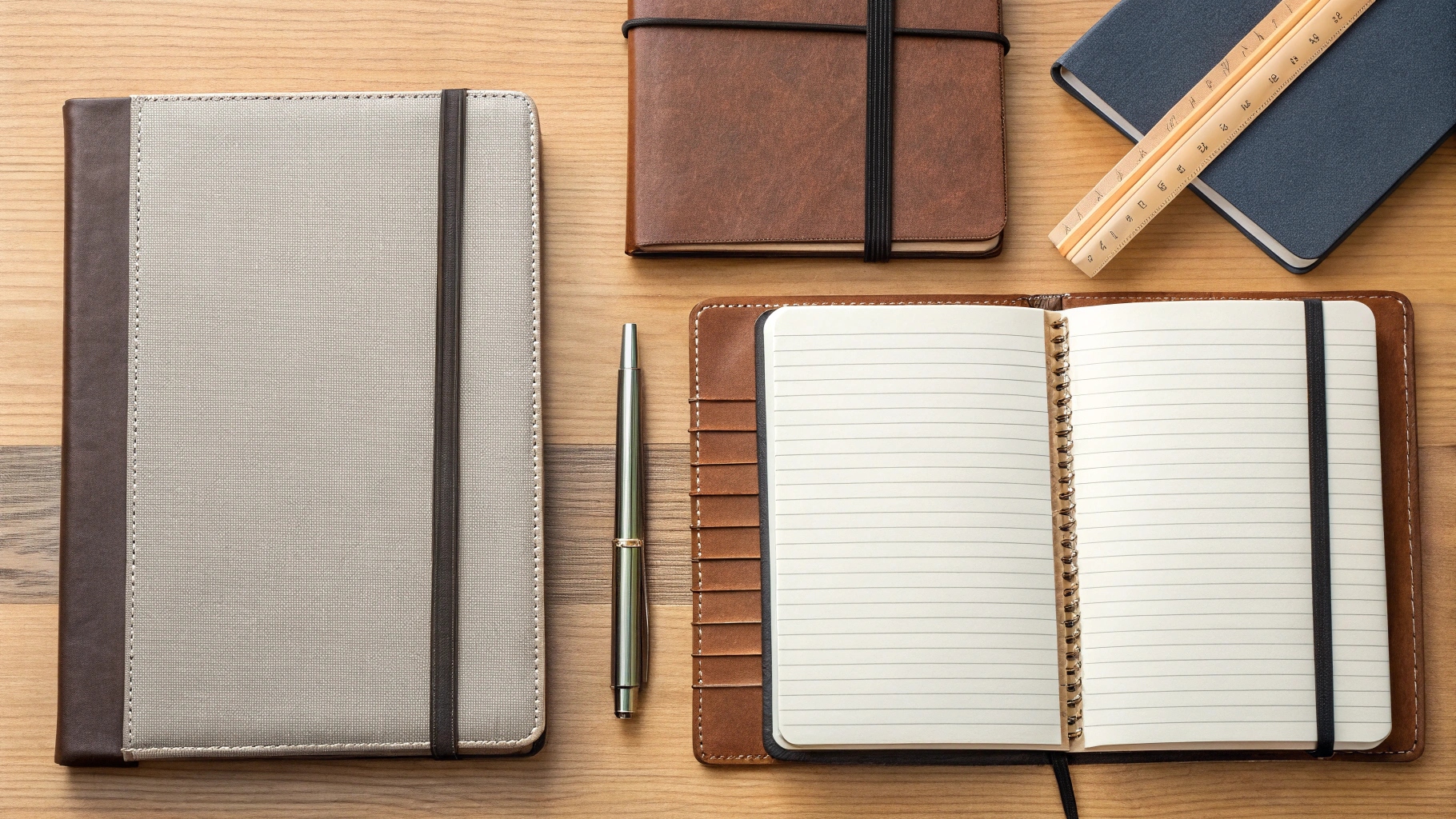
In my work, I help many companies choose items for their branding. Notebooks and notepads are always popular. They are simple, useful tools. But people often ask me which one is better or which kind they should choose. The truth is, both have their own strong points. It is about matching the tool to the job.
What are the Top Notebook Brands?
You want a good quality notebook. There are so many names out there. How do you find the best brands to trust?
Top notebook brands[^1] offer great paper, strong covers, and smart design. They make writing a good experience. Brands like Moleskine, Leuchtturm1917, and Rhodia are known for their quality, which many people appreciate.
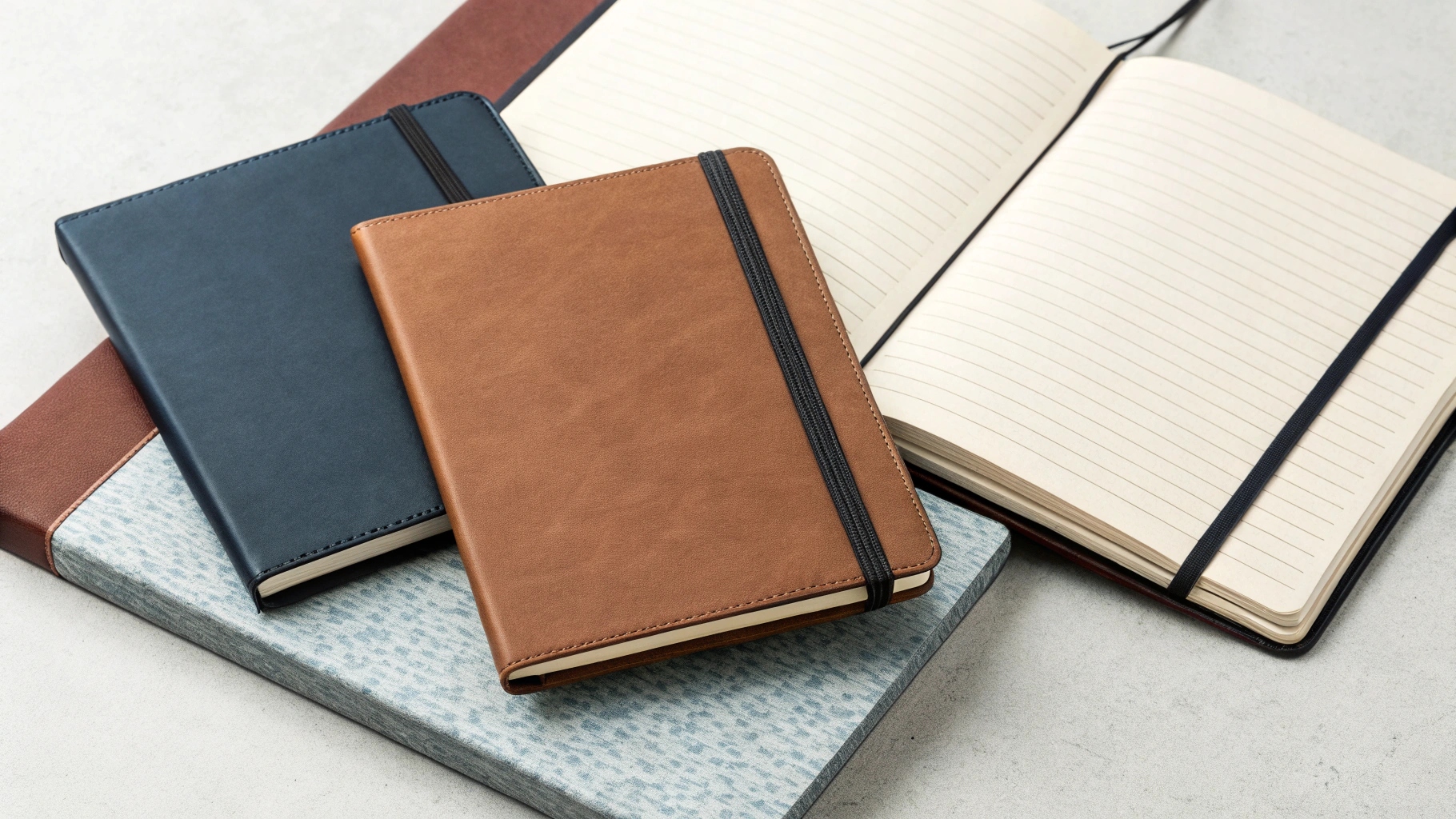
When I think about "top" notebook brands, I think about quality. These brands do not just make a book with paper. They think about the paper itself, how the book is put together, and how it feels to use. This matters a lot, especially when a company wants to give a notebook as a gift. A high-quality notebook reflects well on the brand giving it.
What Makes a Brand "Top"?
It is not just about being famous. It is about these things.
- Paper Quality[^2]: This is key. Top brands use smooth paper that does not let ink bleed through or show too much on the other side. This makes writing enjoyable.
- Strong Binding: How the pages are held together matters. Good binding means the notebook will not fall apart easily, even with daily use.
- Durable Covers: The cover protects the pages. Top brands use materials like good cardboard, strong fabric, or quality PU leather that lasts and looks good.
- Thoughtful Design: Things like page numbers, an index page, a pen loop, or an elastic band to keep the book closed. These small details make a big difference for the user.
Choosing for Your Brand
When I help a company choose a notebook for a gift, I look for a brand that matches their values. If they want to show luxury, we pick a premium brand. If they want to show practicality, we pick a strong, functional one. It is about linking the gift's quality to the company's image.
| Feature | Generic Notebook | Top Brand Notebook |
|---|---|---|
| Paper Quality | Thin, may bleed | Smooth, resistant to bleed |
| Binding | Can loosen quickly | Strong, durable |
| Cover | Flimsy, tears easily | Sturdy, quality material |
| Design | Basic | Has helpful features |
| Perceived Value | Low | High |
Choosing a respected brand means your gift is likely to be used and appreciated. It helps the gift stand out from the average.
Are Notepads Better Than Notebooks?
I need something for notes. Should I get a notepad or a notebook? Is one truly better than the other?
Neither notepads nor notebooks are better overall. My insights show they each have their own strong points. Notebooks are best for things you want to keep for a long time, like journaling or long-term projects. Notepads are great for quick, everyday use because they are easy to grab and throw away when done.
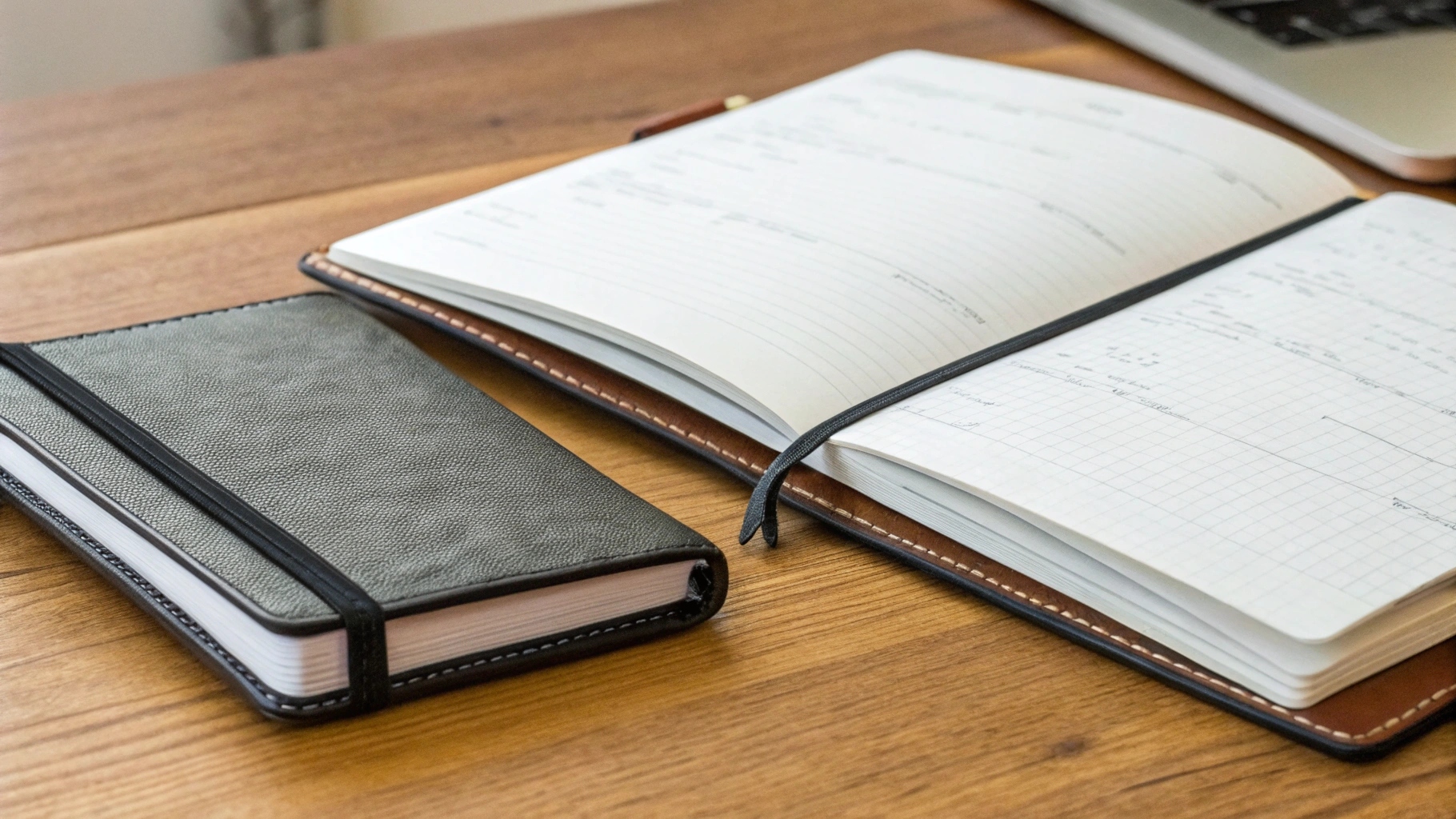
This is a question I get a lot. My insights clearly lay it out: both have their perks. It is not about one being better. It is about what you need it for. Think about how you take notes and how long you need to keep them. This helps you decide which tool fits your task best.
When to Use a Notepad
Notepads are designed for quick, short-term use.
- Quick Notes: Perfect for jotting down a phone number, a quick message, or an idea that pops into your head.
- Disposable Information: Great for shopping lists, to-do lists for one day, or temporary reminders. You can tear off the page and toss it when done.
- Easy Access: Often just a stack of paper held together at the top or side. This makes it fast to pull a page.
When to Use a Notebook
Notebooks are for more lasting work and organization.
- Long-Term Projects: Ideal for meeting notes, project planning, or brainstorming sessions where you need to look back at what you wrote.
- Journaling: For personal thoughts, daily reflections, or keeping a record over time.
- Organized Records: The bound pages mean your notes stay in order. You won't lose pages easily.
- Learning: Great for students to keep class notes together.
For businesses choosing gifts, understanding this difference is important. A notepad might be a good small, disposable gift for an event. A quality notebook, however, is better for clients or employees who need a lasting tool for their work.
| Feature | Notepad | Notebook |
|---|---|---|
| Use Case | Quick notes, disposable | Long-term records, projects |
| Permanence | Low | High |
| Organization | Single pages, loose | Pages stay bound, ordered |
| Portability | Easy to grab a sheet | Entire book carried |
The choice really comes down to the purpose. Neither is better, they just serve different needs.
Which Type of Notebook is Best for Notes?
I want a notebook just for notes. But there are lined, dotted, blank. Which page type helps most for note-taking?
The best type of notebook for notes depends on your note-taking style. Lined notebooks are best for neat, structured writing. Dot grid notebooks offer flexibility for both writing and drawing. Blank notebooks are great for free-form ideas or sketching.
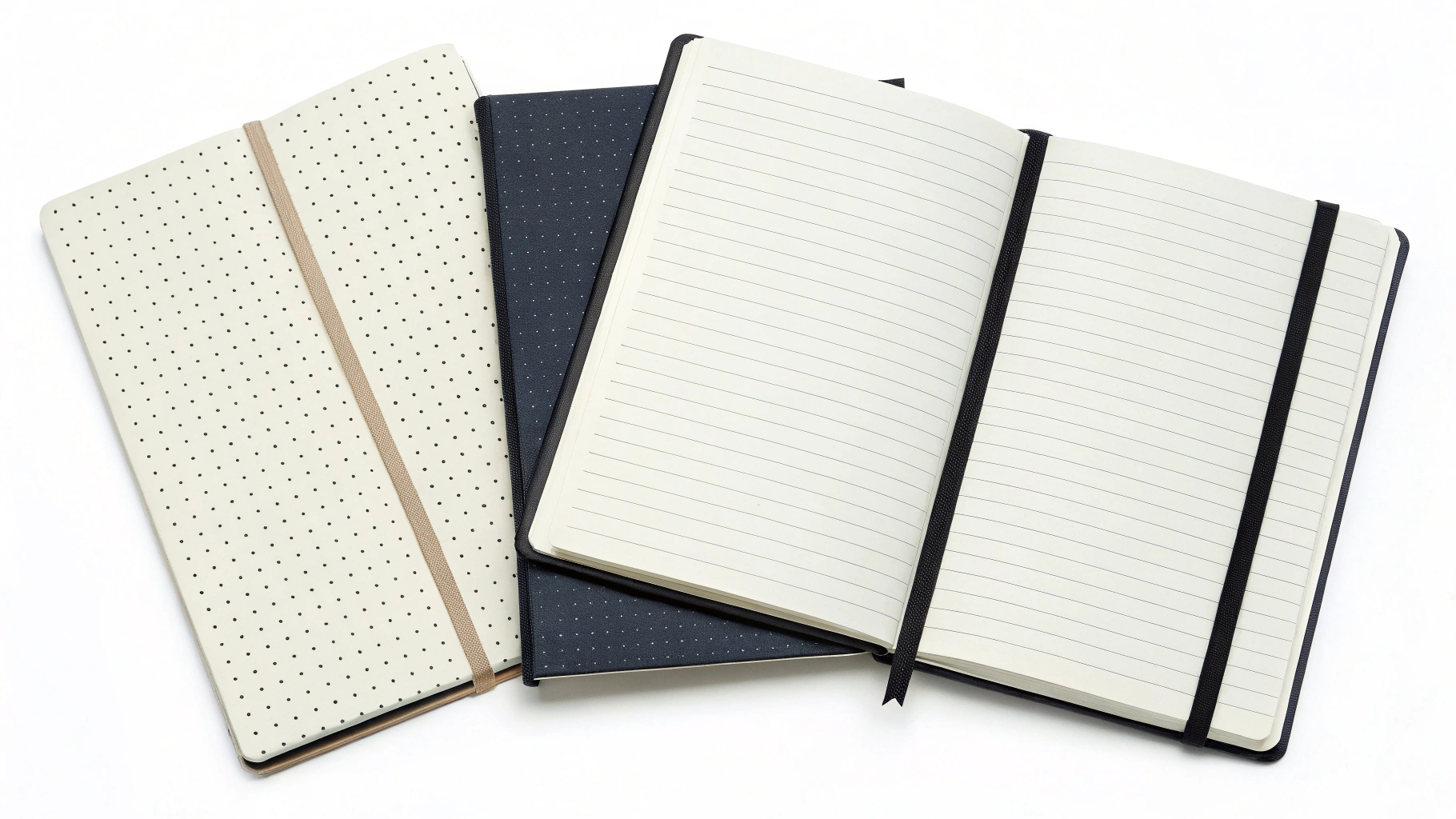
Once you decide on a notebook, the next big choice is the type of pages inside. This affects how you write and organize your thoughts. I always tell my clients to think about who will use the notebook. A student might need different pages than an artist. Each page type helps in its own way.
Common Page Layouts
- Lined (Ruled) Pages:
- This is the most common type. Lines help you keep your writing straight and neat. Best for general note-taking, essays, or long lists where you need structure.
- Dot Grid Pages:
- These pages have small dots spread evenly across them. They are very popular for bullet journaling. The dots provide guidance for writing and drawing lines, but they are light enough that they fade into the background if you want to draw freely or create unique layouts. They offer flexibility for both text and visuals.
- Squared (Grid) Pages:
- These pages have a grid of squares. They are good for math, drawing graphs, or creating very precise layouts. They keep numbers and diagrams neat.
- Blank Pages:
- These pages have no lines or dots. They are best for sketching, mind mapping, or very free-form note-taking where you don't want any guides. They offer maximum freedom.
Binding Styles Affect Use
How the notebook is put together also matters for notes.
- Spiral-Bound: Lays completely flat when open and can fold back on itself. Good for taking notes when space is limited.
- Perfect-Bound (Paperback style): Pages are glued at the spine. Has a clean look but might not lie perfectly flat.
- Casebound (Hardcover): Very durable. Often used for more formal journals or long-term use.
For most general note-taking, a lined notebook works well. For people who mix notes with drawings or like to structure their own pages, dot grid is a great choice. When picking gifts, matching the page type to the likely use makes the notebook much more valuable to the recipient.
| Page Layout | Best For | Key Benefit |
|---|---|---|
| Lined | General writing, lists | Keeps writing neat |
| Dot Grid | Bullet journaling, layouts, drawing | Flexible guidance, visual appeal |
| Squared | Math, Graphs, Precise layouts | Exact alignment |
| Blank | Sketching, Free-form notes | Maximum creative freedom |
Choosing the right type helps the user make the most of their notebook for notes.
Conclusion
The "best" notebook or notepad depends on your need. Notepads are for quick notes. Notebooks are for lasting records. The best type for notes depends on your writing style.
---
[^1]: Explore this link to discover the best notebook brands that ensure quality and enhance your writing experience.
[^2]: Understanding paper quality can help you choose a notebook that enhances your writing experience and prevents ink bleed.

